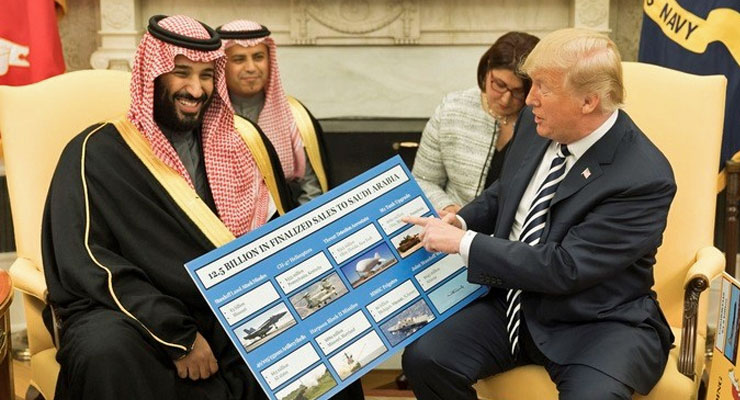
Over the course of twentieth and twenty-first centuries, international relations between states have been predicated by several deep-set fractures which can be described roughly in three ways. Firstly, alienation between the rulers and their own citizens, irrespective of whether they are a kingdom like Saudi Arabia or a democracy like the United States; secondly, even when communication does take place between the rulers and citizens, it is in the form of sound bites and jargon that do not have much substance; and, finally the subliminal influence of intelligence agencies such as CIA, MI6, etc. in international politics.
These fractures developed and flourished within the bracket of the capitalistic globalization that has seeped insidiously into every aspect of international politics. This effectively means that the billion dollar business deals between governments and international corporations ultimately determine the policies that will leave a long-lasting impact on the lives of millions of people, not only in the nations involved, but also in other parts of the globe.
A murder in Istanbul
The US administration’s reaction and response to the vicious brutal murder of Jamal Khashoggi stands as a sad testimony to that fact. Ever since proof emerged that the Saudi journalist went was murdered inside the Saudi consulate in Istanbul on 2nd October, the US has been scrambling to absolve the Saudi authority of any blame even though it is clear to everyone that the orders for such an execution could only come from the highest levels of the Saudi ruling clan. From putting the blame on ‘rouge killers’ to promise to stand by the Saudis even after the report CIA presented, the US administration has consistently shown how far it is willing to go to defend any atrocity committed by the Saudi government.
The ‘marriage of convenience’ that binds USA and Saudi Arabia together is based almost entirely on massive petroleum trade deals that date back to President Franklin D. Roosevelt’s era. Since then, the two countries have forged an intimate, almost unbreakable relationship predicated on the petrodollars and arms trade worth well over trillions of dollars. So intoxicating was this United States, intoxicated by this flooding of revenue from arms sales, was quite willing to overlook the flagrant abuses of human rights abuses and flourishing of Wahabi Islamic extremism that Saudi Arabia has continually sponsored.
Even when it came out that fifteen of the nineteen militants who attacked the Twin Towers on 9/11 were Saudi nationals, US authorities remained unmoved with regards to their protective friendship with the ultra-conservative kingdom, stressing the importance of US-Saudi cooperation to counter Iran’s influence in the Middle-East.
In a similar scenario, when the civil war in Yemen broke out in 2015, Saudi-UAE forces did not waste any time in launching pre-emptive attacks on suspected Houthi strongholds to put pressure on Iran who reportedly backed the rebels. Thousands of Yemeni civilians lost their lives, with over 16,000 casualties overall, resulting in what the United Nations has acknowledged as the ‘worst humanitarian crisis in the world’.
The most recent report by Save the Children estimates that over 85,000 children have died from starvation as a result of the conflict, not to mention the original UN estimate that over 13 million people are on the brink of the worst famine in the last century.
Just a couple of weeks ago the video footage of Yemeni families being forced to boil leaves for feeding their starving children emerged, and yet neither the US president nor any of the European leaders deemed it necessary to intervene and put stop to the Saudi-led attacks that account for most of the casualties described. Not only because it is necessary for them to support their ally unconditionally, but because the war itself is blessing to them.
After all, the dark truth is that wars are highly profitable enterprises and lion’s share of those profits fill the pockets of the main arms suppliers in the conflict. Only now, three years into the conflict, the US and their European allies, are being forced by the global outrage at Khashoggi’s murder to address the horrors this war has inflicted on the Yemeni people.
For the rest of us now, these sobering realisations should bring us all to a moment of reckoning during which we need to seriously assess our relationship with the pervasive bourgeoisie culture and politics. If Khashoggi’s murder has taught us anything, it’s this: we are living in an age where billion dollars arms deals are far more important than human rights or dignity. To come to terms with this reality, it is up to ordinary people like us to become more critically aware of the global political-economic systems that govern our lives. From that point on, the choice is ours to make – do we continue to condone the aggressive, lustful greed this system embodies or attempt, in our own ways, to break it apart and create something new? The latter undoubtedly presents a far more arduous and daunting path, both philosophically and practically. But if we choose otherwise, it will prove right what the cynics have claimed repeatedly: humankind has transformed into an evil, barbaric entity that will mercilessly destroy anything that opposes its dance of destruction.
Leave a Reply